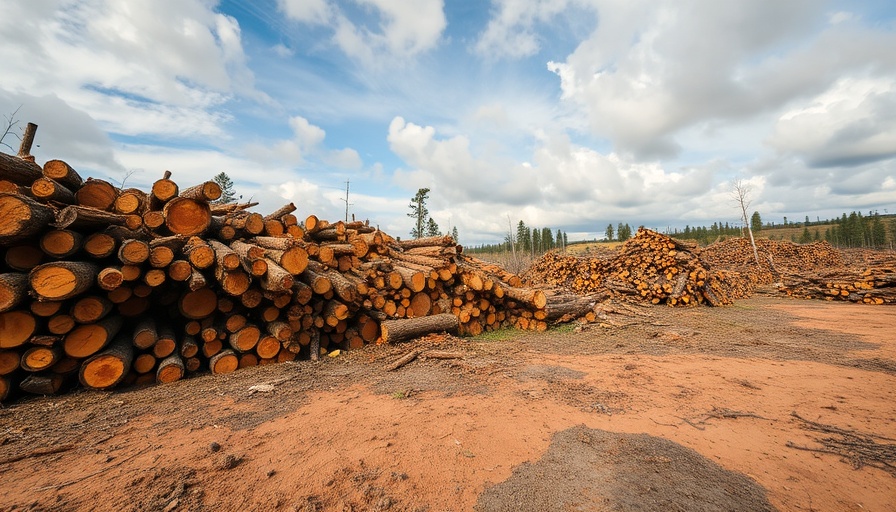
FSC's Controversial Decision: A Step Towards Greenwashing?
The recent decision by the Forest Stewardship Council (FSC) to lift the suspension on Asia Pulp & Paper's (APP) remedy process has sparked considerable debate among environmental activists and industry stakeholders. This critical move, praised by some as a necessary step towards re-certification for the controversial paper company, has raised alarms among those who fear it may compromise the very principles of environmental stewardship that the FSC stands for.
Understanding the Context: Asia Pulp & Paper's Troubling Legacy
Asia Pulp & Paper, owned by Sinar Mas Group, has a troubled history that cannot be overlooked. Since losing its FSC certification in 2007 due to severe environmental violations, whose cost was estimated at a staggering $300 million in a single year, APP has cleared vast areas of forests across Indonesia. Activists estimate that over 2 million hectares of forest have been destroyed, leading to severe ecological consequences including loss of biodiversity and increased carbon footprint.
The Greenwashing Dilemma: Risks of Premature Action
Environmental organizations, including Greenpeace and Woods & Wayside International, voice strong criticism against the FSC's decision, suggesting it not only undermines the credibility of the eco-certification system but also sends a dangerous message about accountability in sustainable practices. By resuming the remedy process before addressing ongoing legal complications surrounding APP’s broader corporate affiliations, there are fears of enabling a “greenwashed” image that detracts from genuine efforts in sustainability and responsible consumption.
What the Future Holds: Potential Implications for Environmental Standards
As the FSC continues its legal review regarding APP's operational scope and obligations, the ramifications of allowing this remedy process to proceed could be profound. Critics warn that failing to uphold stringent criteria for environmental and social responsibilities could set a precedent that might lead to lax standards across the industry. Will future stakeholders overlook serious environmental violations in hopes of quick business resolutions? This remains a crucial question for the integrity of eco-friendly certifications.
Counterarguments: The Positive Aspects of Re-Certification
Nonetheless, some argue that the remedy process could signify a transformative opportunity for APP to arguably shift its practices towards a more sustainable model. By engaging with stakeholders, the firm could implement policies that mitigate past harm while paving the way for more responsible forestry. But at what cost? Advocates for re-certification must grapple with the ethical implications of supporting a company with a radical history and ongoing environmental impact amid claims of reform.
Act Now: What You Can Do to Support Real Change
For those passionate about sustainability and ethical sourcing, there are actionable steps you can take in response to this news. Support brands that prioritize sustainable practices, stay informed about the companies you purchase from, and advocate for environmental regulations that hold firms accountable for their actions. Consider opting for eco-friendly products and practices, such as using reusable materials, participating in community gardens, and reducing waste at home.
This FSC decision represents more than just corporate maneuvering; it is a pivotal moment for the movement towards a truly sustainable future. As consumers, your choices can drive the demand for accountability in corporate practices, fostering a culture of responsibility over greenwashing.
All in all, recognizing the complexities and potential impacts of decisions like these is crucial for fostering an eco-conscious lifestyle and ensuring a sustainable future. Together, we can advocate for the preservation of our planet through responsible consumption and environmental stewardship.
 Add Row
Add Row  Add
Add 



Write A Comment